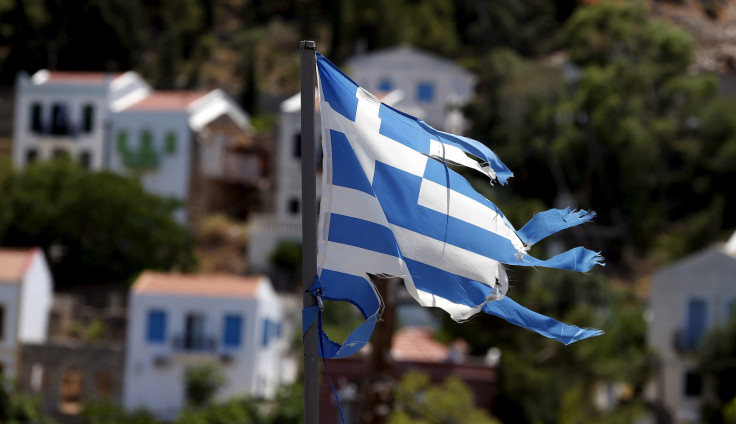Greek referendum: Greece's future is unclear, as polls show country has voted 'no'

Results from four opinion polls show that the Greek people have voted "no", rejecting the demands of Greece's creditors to extend austerity measures for the country to continue receiving bailout money.
But as the Greek referendum's polls closed, the country's financial and political future remains markedly opaque.
Three opinion polls carried out by GPO, Metron Analysis and MRB, showed that the "no" vote was ahead by three points.
Another poll by Marc estimated that 49.5%-54.5% of Greeks voted "No", compared to 45.5%-50.5% who voted "Yes".
However, none of these results are from exit polls, so their accuracy is in question.
Official results from the vote are expected to begin arriving at 11pm local time (9pm BST).
Greece's unclear future
There are rumours from inside the anti-austerity ruling party Syriza that the Greek government are poised to send their negotiating team back to Brussels to arrange a new deal, if the electorate does vote "no".
But whether the Eurogroup would be willing to negotiate with them is uncertain.
Sources: If there’s a NO tonight Greek govt will send negotiators back to Brussels tomo to recommence negotiations w/ eurogroup immediately
— Ed Conway (@EdConwaySky) July 5, 2015But even if Greece votes strongly either "yes" or "no" in the bailout referendum, neither result would offer a clear outcome for the country in terms either of membership of the single currency or of the European Union itself.
A "yes" result is likely to lead to a general election for a new government. Alongside this process – which may be lengthy – the full details of the new bailout programme would have to be finalised.
There will remain a risk of full default throughout this period. It is also likely that banking restrictions on withdrawals and transfers would have to remain in place for a significant period, causing severe social and economic problems within the country.
Despite the Greek government's assertion that a "no" vote will not lead to the country leaving the euro, there are strong indications otherwise.
Support from Germany
Several leading European politicians, including Jeroen Dijsselbloem, a high-profile eurozone official, have said that a "no" would jeopardize Greece's place in the 19-nation eurozone.
But whether Greece's ejection from the trade and political union is truly in the interests of Dijsselbloem and his colleagues is not obvious, in terms of the associated harm to the long-term goal of monetary and political union for Europe.
Germany's foreign minister has made the straightforward point that a "no" vote will make future negotiations with Greece's creditors more difficult.
Even so, Frank-Walter Steinmeier, Germany's Minister for Foreign Affairs, says that Greece would still remain a member of European Union, implying that departure from the single currency would not lead to expulsion from the EU.
He also warned today that Greece's dropping out of the euro would harm Europe's global credibility, implying that European political might be willing to renegotiate the bailouts terms to keep Greece in the euro even after a "no" vote.
Greece's Private Mega TV channel said 35% of those eligible cast votes. However, this fell short of the 40% required for the outcome of the referendum to be valid.
© Copyright IBTimes 2025. All rights reserved.





















